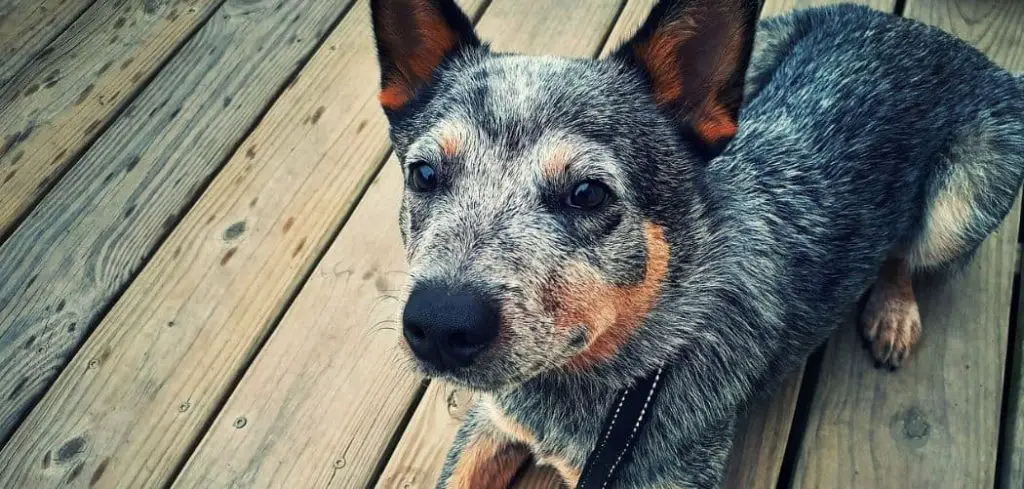If your dog seems nervous, unsettled, or unusually withdrawn—and isn’t eating—it could be a sign of anxiety. While occasional stress is normal in dogs, chronic or intense anxiety can have a real impact on their physical health, including appetite loss.
When left unchecked, this cycle can lead to nutritional deficiencies, weight loss, and more serious behavioral issues.
We outline why anxiety can cause your dog to stop eating, explore common triggers, offer tips to help at home, and show you when it’s time to involve your veterinarian.
Dog Anxiety and Not Eating: Why It Happens
A dog experiencing anxiety and not eating may be overwhelmed by emotional stress, fear, changes in routine, separation, noise sensitivity, or traumatic memories. Anxiety triggers a fight-or-flight response that suppresses appetite, alters digestion, and changes normal behavior.
This mind-body link can lead to sudden refusal to eat even their favorite food.

Dog Anxiety and Not Eating: Common Causes
1. Separation Anxiety
One of the most common types of canine anxiety, separation anxiety affects dogs who become distressed when left alone.
These dogs may whine, bark, destroy furniture, pace, or refuse food when their owner is gone.
Some won’t eat until their person returns—even if food is left out. Over time, the stress can lead to skipped meals and digestive issues.
2. Environmental or Routine Changes
Dogs are creatures of habit, and changes—like moving homes, a new baby or pet, a change in their feeding location, or even daylight saving time—can throw them off.
Some dogs may withdraw, sleep more, or stop eating altogether in response to environmental stressors.
Even small disruptions can be a big deal to sensitive dogs.
Related: Dog vomiting and not eating (Causes and when to worry)
3. Loud Noises or Fear Triggers
Storms, fireworks, vacuum cleaners, or loud household noises can cause extreme fear in dogs.
Many will hide, tremble, pant, or refuse to eat during and after the event.
This behavior is often more intense in certain breeds like Border Collies or German Shepherds, who are more reactive to their surroundings.
4. Travel Anxiety
Car rides, vet visits, and unfamiliar environments can bring on travel-related anxiety.
Dogs may pant, drool, or tremble—and may refuse food during and after travel.
Even dogs that enjoy adventures can become stressed in new or overstimulating places.
5. Trauma or Past Abuse
Rescue dogs or those with a history of mistreatment may associate food, bowls, or certain environments with negative experiences.
This can lead to anxiety-driven appetite suppression. Sudden noises or gestures can trigger nervous behavior or food avoidance, even if the dog is safe now.
6. Social Anxiety or Conflict with Other Pets
Some dogs feel intimidated by other animals in the home, especially around food.
They may avoid eating when another dog is near, even if there’s no obvious aggression.
Others may show “submissive” behavior and simply walk away from their meals to avoid conflict.
What to Do If Your Dog Has Anxiety and Isn’t Eating
If you suspect your dog’s appetite loss is related to anxiety, here are some steps you can take at home to reduce stress and encourage eating:
Create a calm eating environment: Feed your dog in a quiet, low-traffic area with no interruptions.
Stick to a consistent routine: Serve meals at the same times daily to build trust and predictability.
Use calming aids: Try calming pheromone sprays, thunder shirts, or lavender-scented items to ease anxiety.
Hand-feed small bites: For very nervous dogs, hand-feeding can provide comfort and encouragement.
Warm up the food slightly: This can enhance the smell and make it more tempting.
Avoid scolding or pressuring: Never punish your dog for not eating—it will only heighten their anxiety.
Mild anxiety may resolve on its own with time and reassurance, but persistent symptoms need further support.
When to Call or Visit Your Vet
Contact your veterinarian if:
Your dog hasn’t eaten for more than 24 hours.
Anxiety symptoms are interfering with sleep, exercise, or digestion.
There’s significant weight loss, vomiting, or lethargy.
Your dog shows signs of depression or aggression.
You’re unsure if it’s anxiety or a medical issue.
Your vet may recommend a full health check to rule out underlying causes.
They might also suggest behavioral therapy, anti-anxiety medications, supplements, or working with a certified dog behaviorist for long-term support.
Read more: Dog Tired and Not Eating (What it means)
Key Takeaway
Dog anxiety and not eating often go hand in hand, especially when emotional stress disrupts your dog’s daily life.
Whether it’s separation anxiety, noise phobia, or a reaction to change, it’s important to approach the situation with patience and compassion.
While some dogs may bounce back quickly, others may need help breaking the cycle of fear and food refusal.
Watch closely, offer a safe and consistent routine, and don’t hesitate to get professional support when needed.
Addressing anxiety early can not only restore your dog’s appetite but also improve their overall quality of life.
